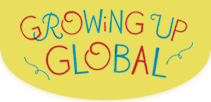 U.S. students rank below 30th in math, 23rd in science, 17th in reading out of 30 developed countries (Dec 2010 OECD-PISA results).
U.S. students rank below 30th in math, 23rd in science, 17th in reading out of 30 developed countries (Dec 2010 OECD-PISA results).
In 1995, the United States was #1 in the world in college graduation rate. In 2005, it was 15th.
90% of American students cannot find Afghanistan on a map. (Roper/National Geographic poll)
91% of American students cannot speak a second language. But bilinguals have stronger analytic skills, can adapt to more professional situations, and even are found to forestall the onset of Alzheimer’s and dementia. (Various sources, including NYTimes)
These statistics can be alarming and serve as a wake-up call, but we’ve seen through the international test results that the solution isn’t more testing or simply being motivated by “competition.” (That’s been tried for the past 10 years, and our results globally have only gotten worse.) The skills of the 21st Century call for a BALANCE: be competitive, but also be cooperative. Teams need to get along and solve problems across national and cultural boundaries. They need to creatively think outside every imaginable box. They need to communicate using complex skills: multiple spoken languages, technology that’s rapidly changing, understand cultural cues that might be quite subtle. It’s no longer enough to know all the information – any Google search gives us much more than we’ll ever need to know. But how do we PROCESS or use that information? These are life skills picked up through the qualities that make up a “global citizen.” Adaptability, resilience, flexibility, initiative, curiosity are crucial skills that teachers and parents can be mindful of instilling in their kids . The person with those qualities of global citizenship is the person an employer wants to hire; that’s the person a group wants to have on their team.
I think it’s also a very JOYFUL process of discovery. When motivated by fear and insecurity it won’t stick, but if we love to learn about the world, and get a taste of all it has to offer, of course we’ll be more motivated, open, curious, adaptable – all the skills that we need young Americans to embrace for 21st Century success.
Summer is an ideal time to launch this process – for any age learner. You can start at www.growingupglobal.net, with the brand-new One World, Many Stories activity guide available for free download. It’s a global journey to supplement the national libraries’ summer reading theme. The One World Many Stories activity guide is packed with resources to help parents and educators discover the world with their kids – even without purchasing plane tickets!

